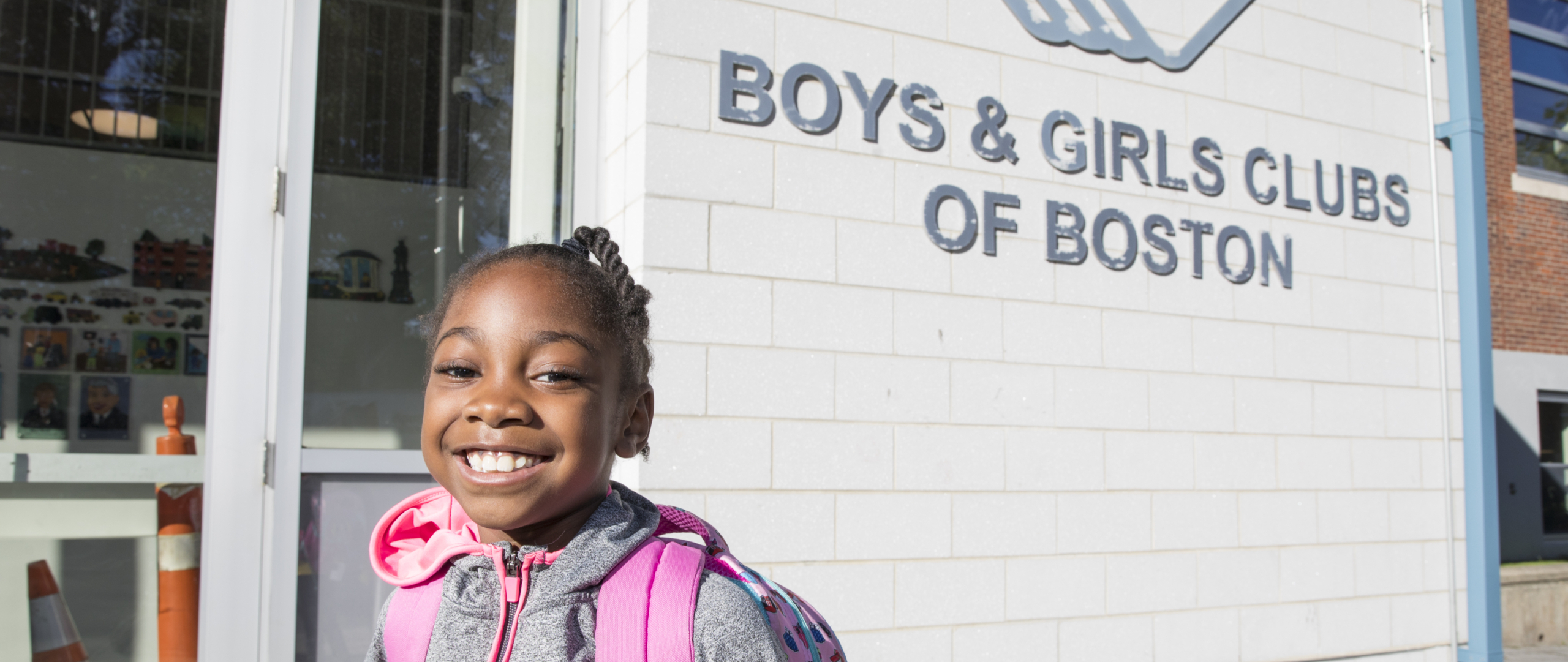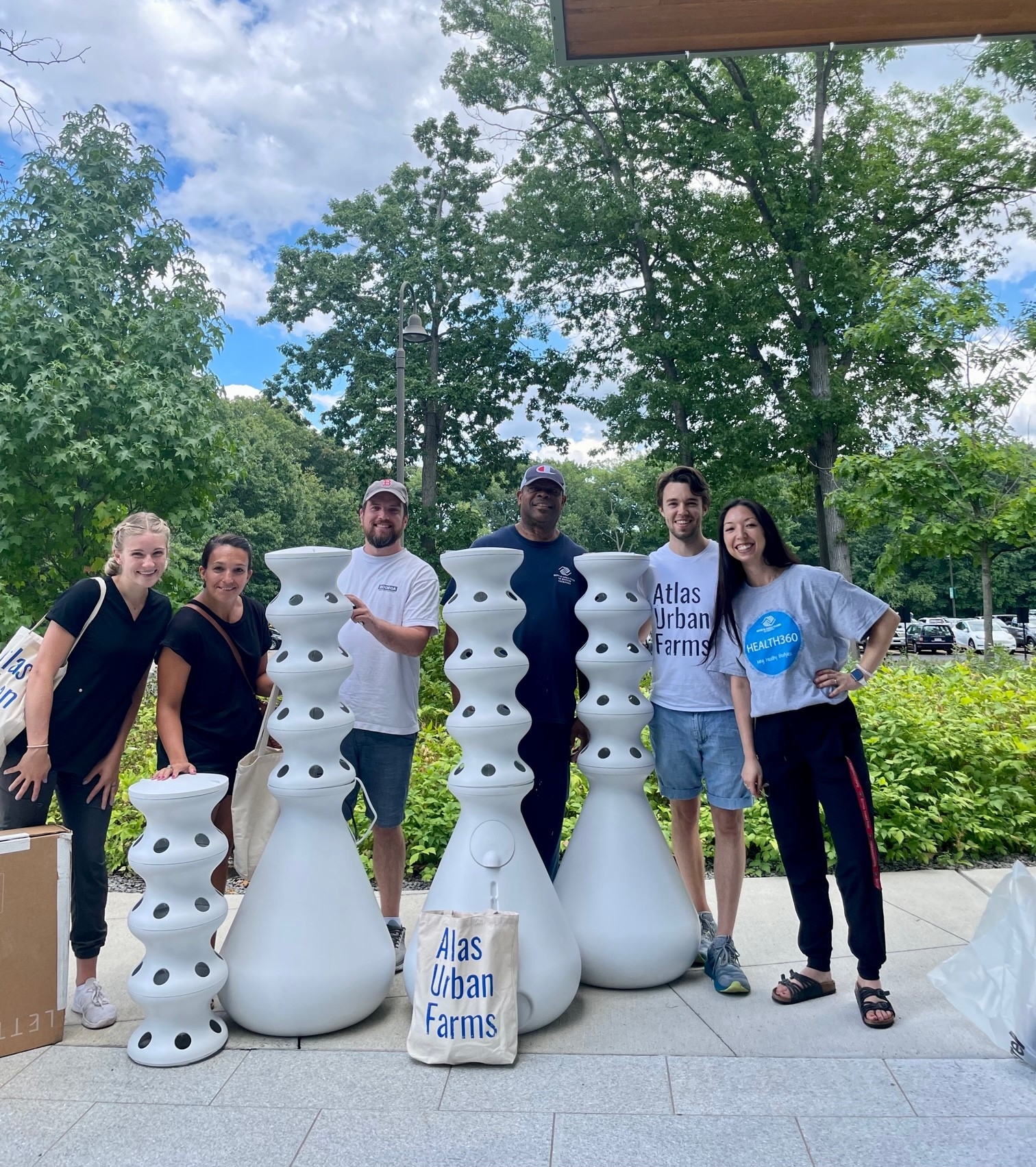“In addition to the fun and educational outdoor gardening programs we are running now, I’m excited about the opportunity these hydroponic gardens offer for Clubs to have access to gardening programs year-round. This is a really cool opportunity for our members to dive deeper into STEM topics and environmental justice.”
—Gabrielle Witham, Director of Healthy Lifestyles, Boys & Girls Clubs of Boston
In fall 2022, Boys & Girls Clubs of Boston (BGCB) planted eight hydroponic gardens across its network of sites in partnership with Atlas Urban Farms, with staff finding creative ways to incorporate them into the fabric of daily life at the Club.
Some Clubs are serving the fresh produce in the meals members are eating each night while others are building programs around them focused on topics like environmental justice and food accessibility. But the story behind these futuristic-looking garden towers finding a home at BGCB extends back well beyond this past year, to a hiking trip through Grand Teton National Park.
“I had just finished climbing a mountain in Wyoming and was pulling my car into a restaurant, and that’s when I saw one for the first time,” explained Connor Harbison, Founder of Atlas Urban Farms. “I could see a vertical farm standing next to the building and I thought, ‘This is going to be the future.’”
Since that time, Harbison has run with the concept and established Atlas Urban Farms, a company that is revolutionizing restaurant supply chains by allowing restaurants to grow their own ingredients on site.
“At the core of what we do is simplicity,” Harbison continued. “Everybody’s gotta eat, and we are simply extending an ancient human practice that has been happening for thousands of years into new environments.”
One new environment for these hydroponic gardens is Boys & Girls Clubs across Boston and Chelsea. According to Harbison, Atlas Urban Farms keeps a catalogue of equipment on hand that can be donated, and the organization is thrilled that its gardens have found a good home.
“The gardens have been excellent additions to our Clubs,” explains BGCB’s Director of Healthy Lifestyles Gabrielle Witham. “They are adding a new level of depth to our healthy development programs, and I’m hearing from youth and staff in Clubs about how cool they are to look at.”
Current Hydroponic Gardening Programs at BGCB
Each Club has embraced their Hydroponic Garden in its own way with the common denominator being positive impact throughout the Club community and beyond.

Connor Harbison, Founder of Atlas Urban Farms

Culinary Director Tracey Marchetti and Club member Harlen next to hydroponic garden

Invest in Boston's Future
Give TodayAt Josh Kraft Mattapan Teen Center, teens are using the ingredients they grow to prepare meals as part of the Club’s “Good Eats & Environmental Justice Club.” In the program, teens learn how healthy foods can become more accessible, and also how they can make their own healthy meals. All leftover produce gets delivered to the local community fridge.
Gerald and Darlene Jordan Club has embarked on “growing a salad” and harvesting all of the fresh ingredients they would want to have as part of their own meal, include rainbow swiss chard, romaine, blue kale, and spinach. Then, members can enjoy the fruits of their labor as part of the dinners they are served in the evening.
“Our members who claimed to not like vegetables come into the cafeteria and are literally dancing around this garden,” explains Tracey Marchetti, Gerald and Darlene Jordan Club’s Culinary Director. “There is so much excitement around how good the vegetables taste that we are growing in our hydroponic garden.”
Edgerley Family South Boston Club plans to share its harvest of lettuce, kale, herbs, green beans, sugar peas, strawberries, and tomatoes with family passing through its entrance, and use any leftovers in Club dinners. Charlestown Club staff has been making their own salads with the lettuce they have grown in their hydroponic garden, and have a lot of fun picking it themselves. Yawkey Club of Roxbury plans to use the vertical gardens for observation projects, and then share everything it grows with its kitchen to make delicious salads and smoothies.
“In addition to the fun and educational outdoor gardening programs we are running now, I’m excited about the opportunity these hydroponic gardens offer for Clubs to have access to gardening programs year-round,” explained Witham. “This is a really cool opportunity for our members to dive deeper into STEM topics and environmental justice.”







